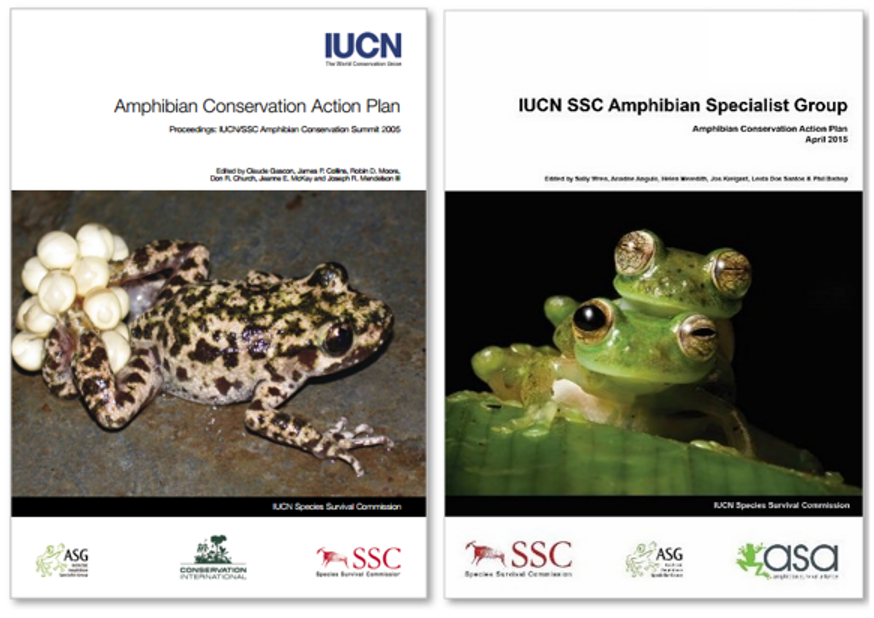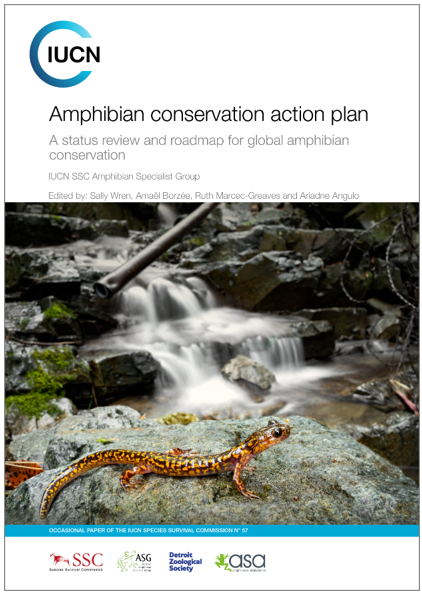The Amphibian Conservation Action Plan (ACAP), the first taxonomic class-level plan of its kind, was first published in 2007, updated as a digital online resource in 2015, and a third thorough status review update in 2024. It aims to act as a road map for amphibian conservation at the global level, and is used as such by the ASG, the Amphibian Survival Alliance (ASA), Amphibian Ark, and other conservation and funding organizations.
The updated ACAP Status Review was released on 23rd July 2024, and is available here.
In 2019, the ASG initiated the process of updating ACAP. This iteration of ACAP involves the development of two complementary documents: 1) a synthesis of developments in major themes of amphibian conservation over the last 15 years (an academic status review), and 2) a user-friendly summary of the key take-home messages and recommendations to a broader audience (an implementer document that will follow the status review). In this way, ACAP can provide the most up-to-date evidence on threats and approaches to amphibian conservation, identifying gaps and priorities that can be disseminated and adopted by stakeholders across the globe.
The purpose of this updated ACAP document is both to help guide researchers in identifying the most important knowledge gaps, work on which will have a significant impact to on-the-ground action, and to support those implementing amphibian conservation activities to make evidence-based decisions. While not a one-size-fits-all solution – all chapters will not be applicable to all species – conservation practitioners can pull information from relevant sections to help guide their work.
ASG’s goal is that this globally scoped document can inform action at regional and local levels, and likewise that ASG acts as a conduit for regional experiences to feed these into global knowledge, improving amphibian conservation action worldwide.
ACAP is updated by the ASG’s Thematic Working Groups, each of which develops a chapter for its respective theme. A list of current Thematic Working Groups and their leadership can be found here.
2022 ACAP Open Consultation
The draft 2022 ACAP status review went through an open consultation. We undertook this process because we wanted this version of the ACAP to be a product of the broad amphibian conservation community. The draft document was available for open consultation with a request for feedback from all those with knowledge and experience in amphibian conservation. For more information on the status review please click here.
Recommended citation for the 2024 ACAP status review:
IUCN SSC Amphibian Specialist Group (2024). Amphibian conservation action plan: A status review and roadmap for global amphibian conservation. Wren, S., Borzée. A., Marcec-Greaves, R. & Angulo, A. (Eds.). IUCN SSC Occasional Paper, No 57. Gland, Switzerland: IUCN.
Previous plans

2007 Amphibian Conservation Action Plan

